Living with the Horwin EK3 | Electric Commuter Bike Review
The Horwin EK3 is an adorable little commuter that will navigate the city’s traffic jams.

Slick, stylish and small enough to navigate the crowded streets of a busy city, the sleek design even won the Red Dot Design Award 2021. Unsurprisingly, when seen at night.
The EK3 has three settings, designed to control speed in urban areas. And as someone who has recently been on a speed awareness course, I found it handy to come off a dual carriageway into a 30 zone and with a flick of a switch know that my speed is limited. Simple to use, fast and fun, now onto what you really want to know…
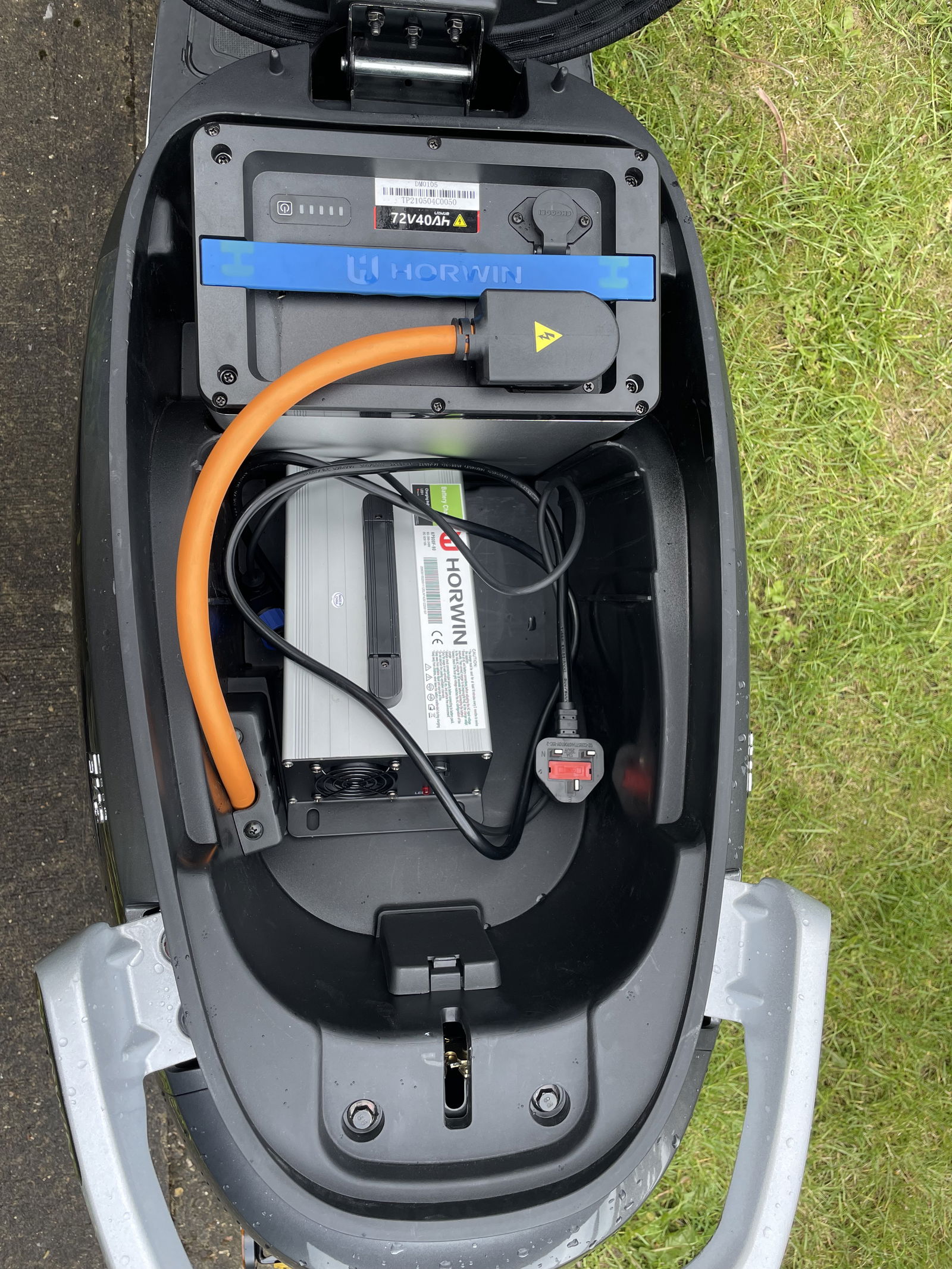
Charging, range and speed
There are some urban commuters that only work in large, built up cities like London and Manchester. The EK3 works if you live in a village and commute into the city.
The EK3 has a recorded top speed of 95 km/h (60 mph), however I got this up to 64mph. Plus, it accelerates to 60 km/h (37mph) in six seconds and full torque is available immediately, meaning one can dash away from cars at the lights.
One word of warning, don’t use the reverse function whilst in the third (fastest) mode as you will fly backwards. I may have flown backwards at one point. I may have narrowly missed a wall.
I took the EK3 to a few of the villages surrounding Peterborough where I know that people live, but work in London. The 90km (55 mile) range (at 45 km/h/28mph with one battery) is more than enough to get to and from the train station (or the business parks). And it halves the journey time as I was filtering through the tightest traffic jams.
I preferred to charge overnight with the battery removed from the saddle. The charging time for a battery pack is about 4 hours, and charging overnight I only noticed a slight increase on my smart metre.
Comfort
This is a comfortable scooter. With the urban commuters, I do aim for a few bumps to see how it handles the terribly paved streets of the UK. The vacuum tyres apparently offer a longer life than ordinary tyres. I know that they certainly helped when an unexpected pothole rears its head. Plus, like most electric bikes, it ran almost silent wherever I went.
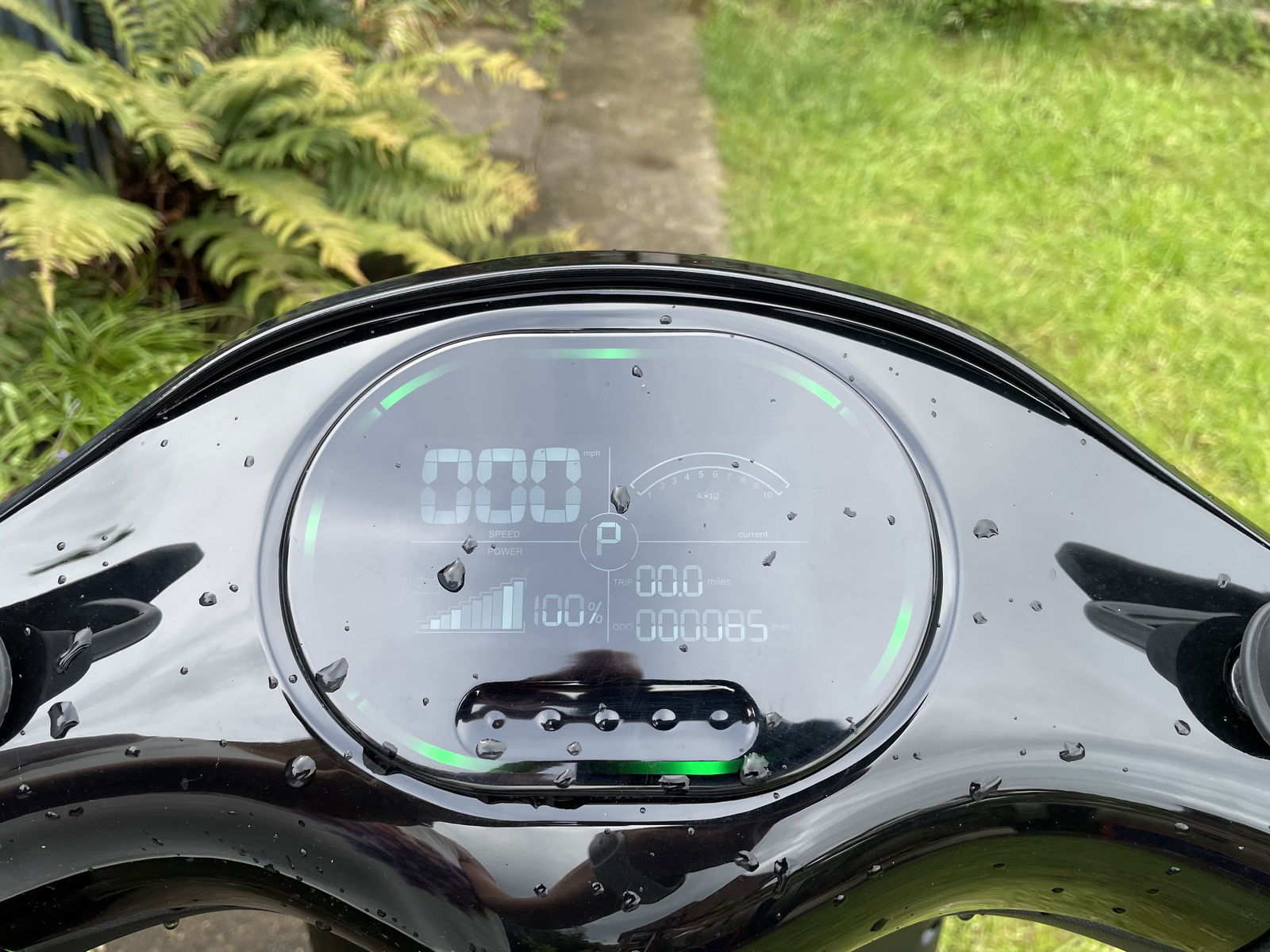
Equipment
As standard, the EK3 comes with (deep breath)... LED lights, a light switch-off delay function, keyless go, a touch-start display, cruise control, reverse gear, an anti-theft alarm system and breakdown-proof tyres. It also has a USB connection, to charge your smartphone whilst riding.
The Cockpit shows current speed, cruise control, battery level, and riding range, and you can start your motor by sliding your finger over the touch-start strip. As someone who is always late, the only thing that was missing was a clock.
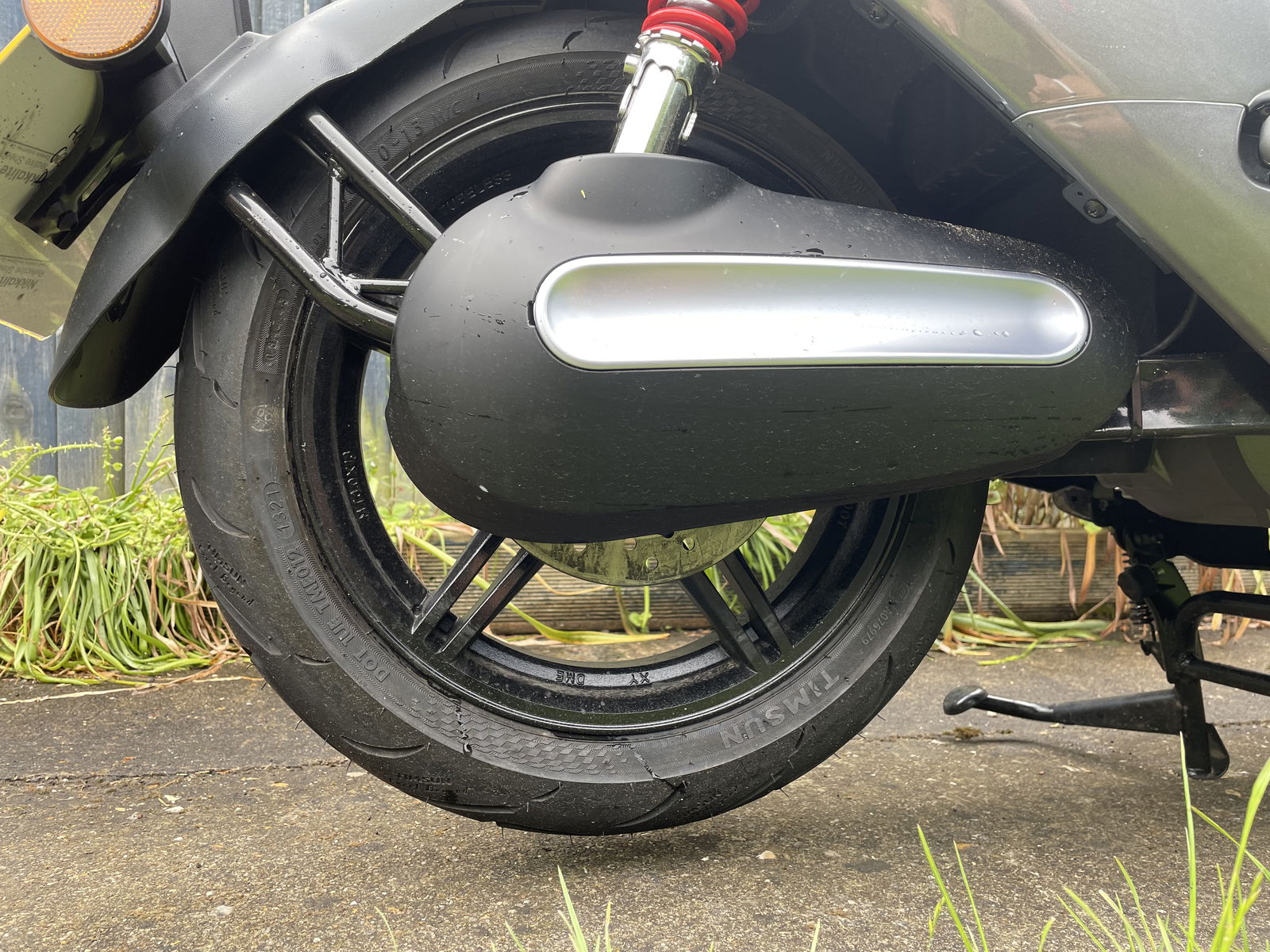
Brakes
The Horwin EK3 has a CBS (Combined Braking System) that distributes the braking force between the front and rear brake discs. This means it is possible to stop suddenly without toppling when a bus slams on its brakes in front of you, on a hill, in the middle of a rainstorm.
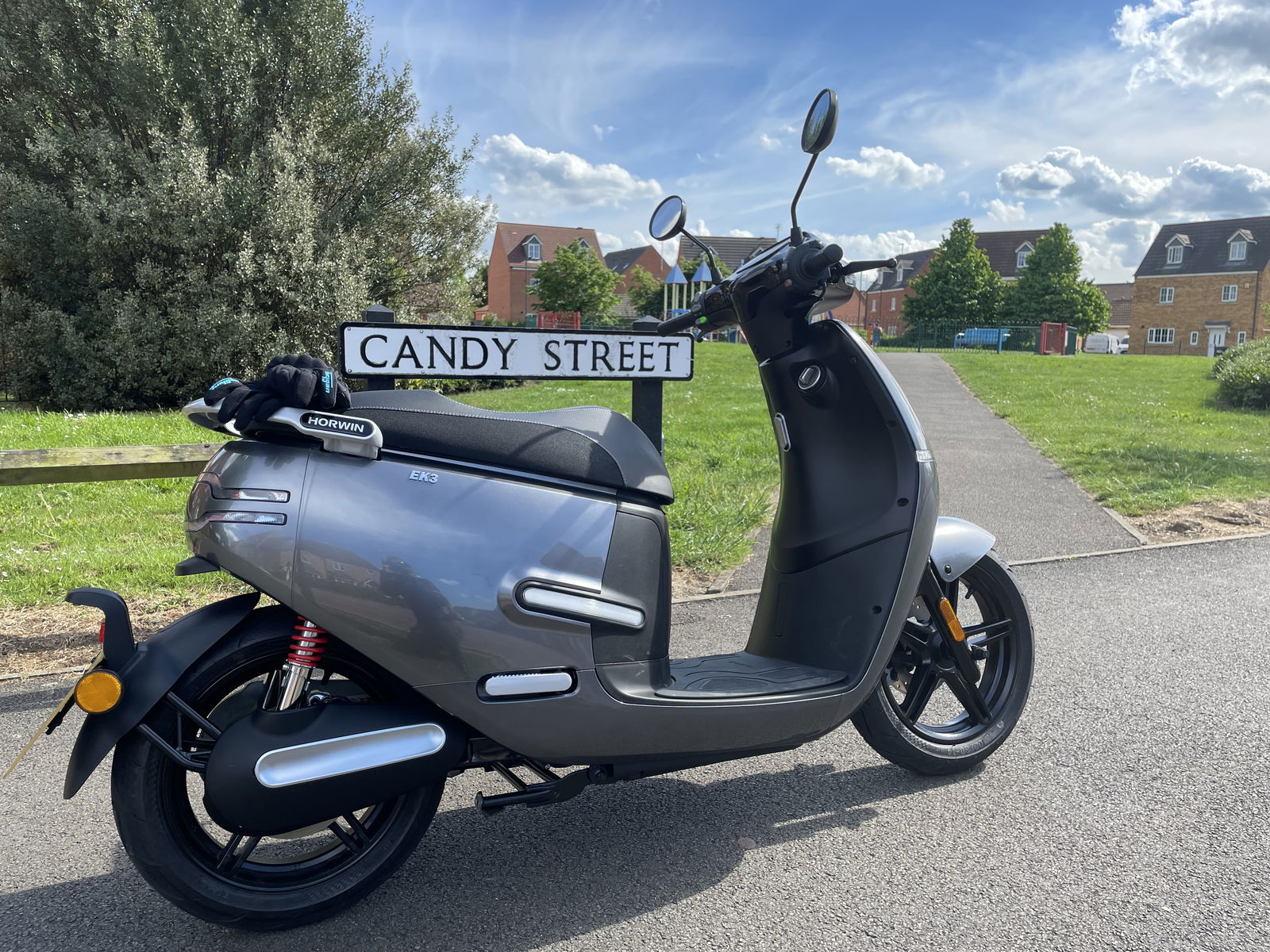
Price
Cash price for the EK3 is £4,099 or HP with a £415 deposit (10%) is £117 per month over 3 years and £92 per month over 4 years.
It also has low maintenance costs as the engine is maintenance-free and only parts of the brake system and tyres may need to be replaced. Also, running costs are significantly reduced. It only costs pennies to charge overnight and pence to do a journey that costs pounds (sterling, not weight) in fuel.
Horwin EK3 verdict
The main question for any of these commuters is ‘Can I use this instead of a car or public transport?’, and the answer is yes. The EK3 navigated the small winding streets, filtered through the tightest roads and held its own on dual carriageways and B-roads.
The only downside I found was that my helmet didn’t fit into the saddle. However, that’s because I exclusively wear full face helmets. Open face helmets will fit.
Overall, this made any boring journeys quicker, cheaper and more importantly, it made it fun. I looked forward to taking the EK3 and I looked forward to getting stuck in traffic so I could weave my way in and out.
Horwin EK3 specification
Length | 1900 mm |
Width | 690 mm |
Height | 1130 mm |
Seat height | 780 mm |
Motor type | DC motor |
Power management | Field Oriented Control (FOC) |
Battery | 72 V, 36 Ah (optional 72 Ah with second battery) |
Battery | 18650 lithium-ion from Samsung |
Front wheel hub | MT 2.5×14 |
Rear wheel hub | MT 3.0×13 |
Front-wheel | 100/80-14 |
Rear wheel | 110/70-13 |
Wheelbase | 1320 mm |
Min. ground clearance | 125 mm front wheel hub |
Kerb weight | 95 kg (without battery) |
Maximum laden mass | 284 kg |
Hub | Aluminium alloy |
Max. power | 6.2 kW |
Nominal rpm | 6365 rpm |
Torque | 195 Nm |
Max. speed | 95 km/h |
Reduction ratio | 1:7.8 |
Riding range (45 km/h) | Max. 90 km (with 1 battery) |
Loading cycles | Approx. 1000 |
Tyres | Front 14“/ Rear 13“ |
Braking system | CBS hydraulic brakes |
Charging current | 10 A |
Charging time | Approx. 4 h (0-100%) |
KIT CREDITS
Gloves: Furygan Jet Lady D3O
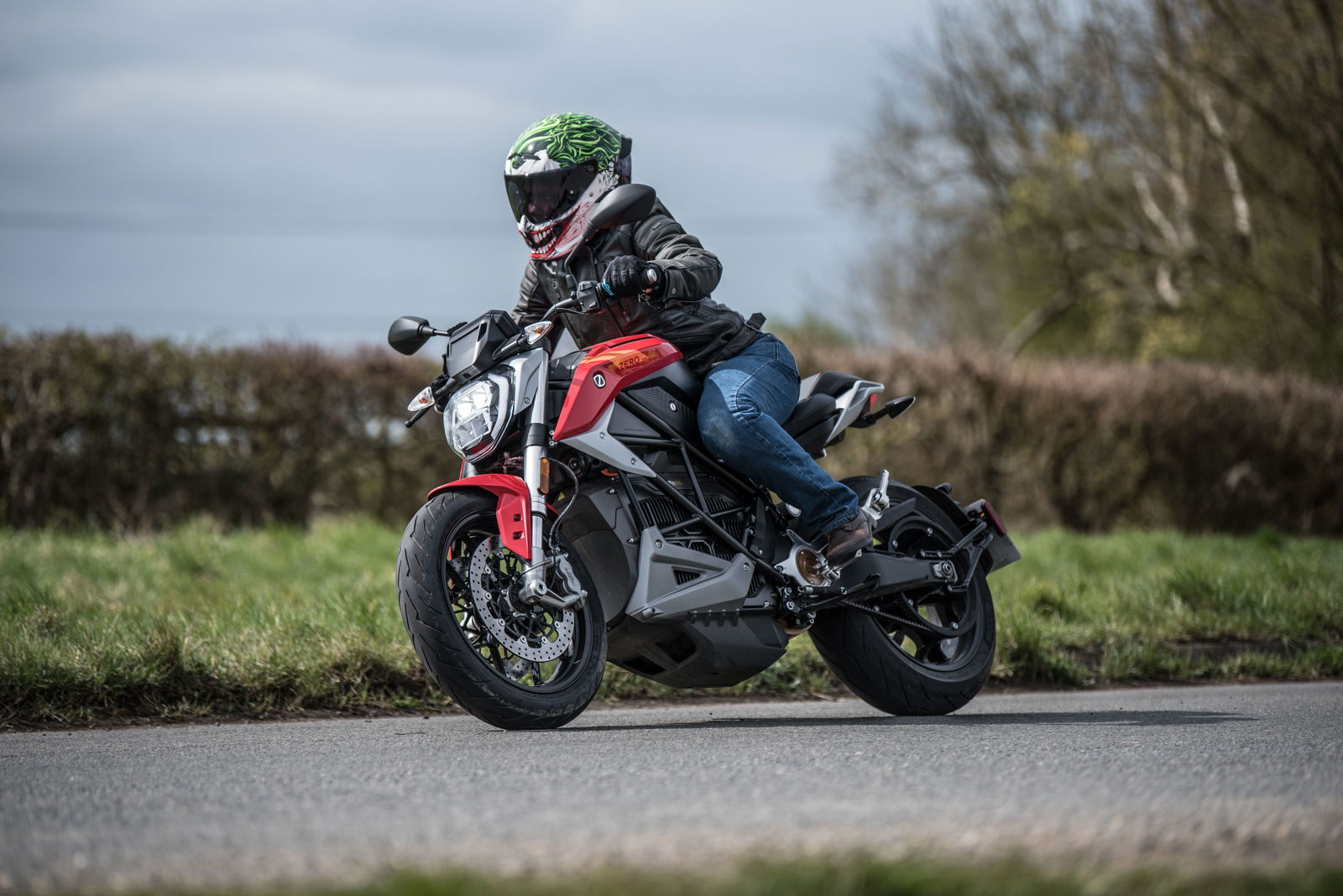
.jpg?width=1600)





